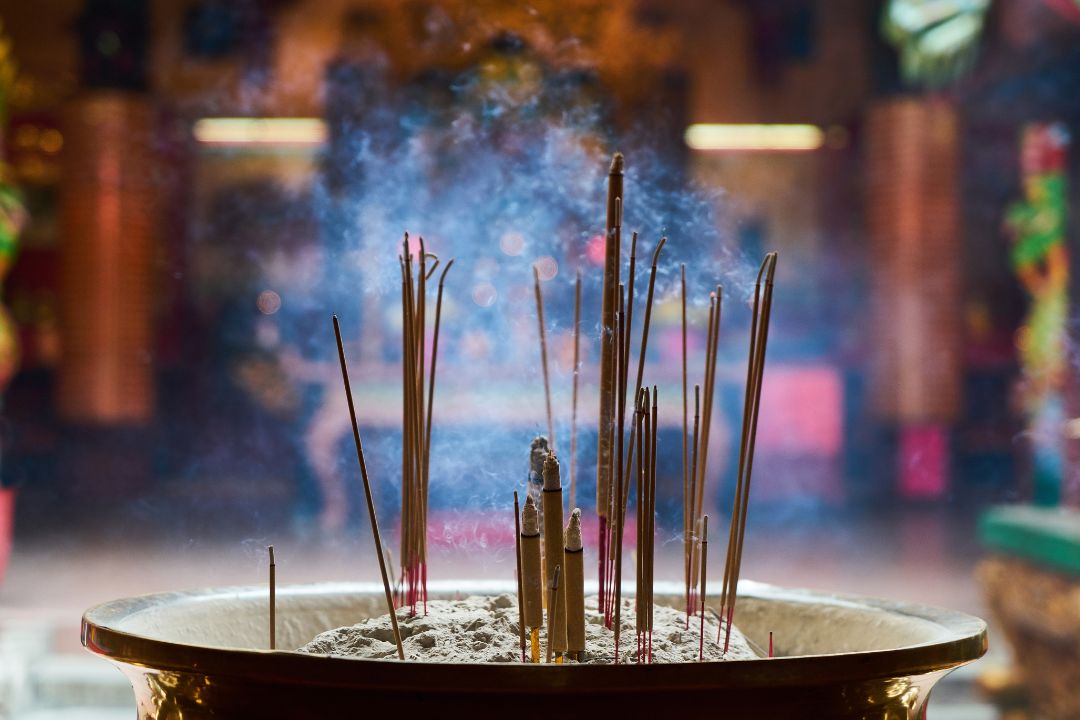In the bustling streets of India, amidst the cacophony of everyday life, there exists a subtle yet powerful presence that cuts through the noise and transports one to a realm of tranquility and reverence: the fragrance of agarbatti sticks. These slender incense sticks, imbued with centuries of tradition and spiritual significance, hold the power to sanctify spaces, elevate the mind, and evoke a sense of divine presence.
Agarbatti, also known as agarbathi or incense sticks, has been an integral part of Indian culture and spirituality for millennia. The word "agarbatti" is derived from the Sanskrit word "agaru," which refers to a type of fragrant wood used in incense-making. Traditionally made from a blend of natural ingredients such as aromatic resins, herbs, spices, and wood powders, agarbatti sticks are meticulously crafted to create a fragrant offering to the divine.
The art of making agarbatti sticks is a time-honored tradition passed down through generations, with each stick crafted with care and reverence. The process begins with selecting the finest natural ingredients, sourced from the bountiful treasures of nature. Fragrant resins like frankincense, myrrh, and benzoin are carefully blended with aromatic herbs such as sandalwood, cloves, and cinnamon, creating a harmonious symphony of scents that soothe the senses and uplift the spirit.
Once the ingredients are blended to perfection, they are mixed with a natural binding agent such as gum arabic or makko powder, which helps shape the mixture into slender sticks. These sticks are then left to dry and mature, allowing the fragrances to meld and deepen over time. Finally, the dried sticks are hand-rolled in fragrant oils or dipped in perfumed solutions, imparting a rich and lingering aroma that fills the air with its sacred presence.
The burning of agarbatti sticks is more than just a sensory experience; it's a sacred ritual that symbolizes purification, offering, and devotion. In Hinduism, agarbatti is an essential part of puja ceremonies and religious rituals, where it is offered to the deities as a gesture of reverence and worship. The fragrant smoke from burning agarbatti is believed to purify the air and create a sacred atmosphere that facilitates connection with the divine.
Similarly, in Buddhism, agarbatti plays a central role in meditation and contemplative practices, where it is used to create a serene and conducive environment for inner reflection and spiritual growth. The subtle aroma of agarbatti helps calm the mind, soothe the senses, and enhance concentration, allowing practitioners to delve deeper into their practice and connect with the essence of their being.
Beyond its spiritual significance, burning agarbatti sticks also has practical benefits for purifying the air and creating a clean and pleasant environment. Scientific research has shown that certain aromatic compounds found in agarbatti have antimicrobial properties and can help reduce airborne bacteria and viruses, making it an effective tool for cleansing and sanitizing spaces.
In a world filled with chaos and distractions, the fragrance of agarbatti sticks serves as a gentle reminder to pause, to breathe, and to connect with something greater than ourselves. In its sacred aroma, we find solace, inspiration, and a sense of belonging to a timeless and universal tradition that transcends borders and unites us all in our search for meaning and purpose.
So, the next time you find yourself in need of clarity, comfort, or spiritual nourishment, why not light an agarbatti stick and let its sacred aroma envelop you in its divine embrace? In its fragrant smoke, may you find peace, joy, and a sense of connection to the sacred essence of life itself.

